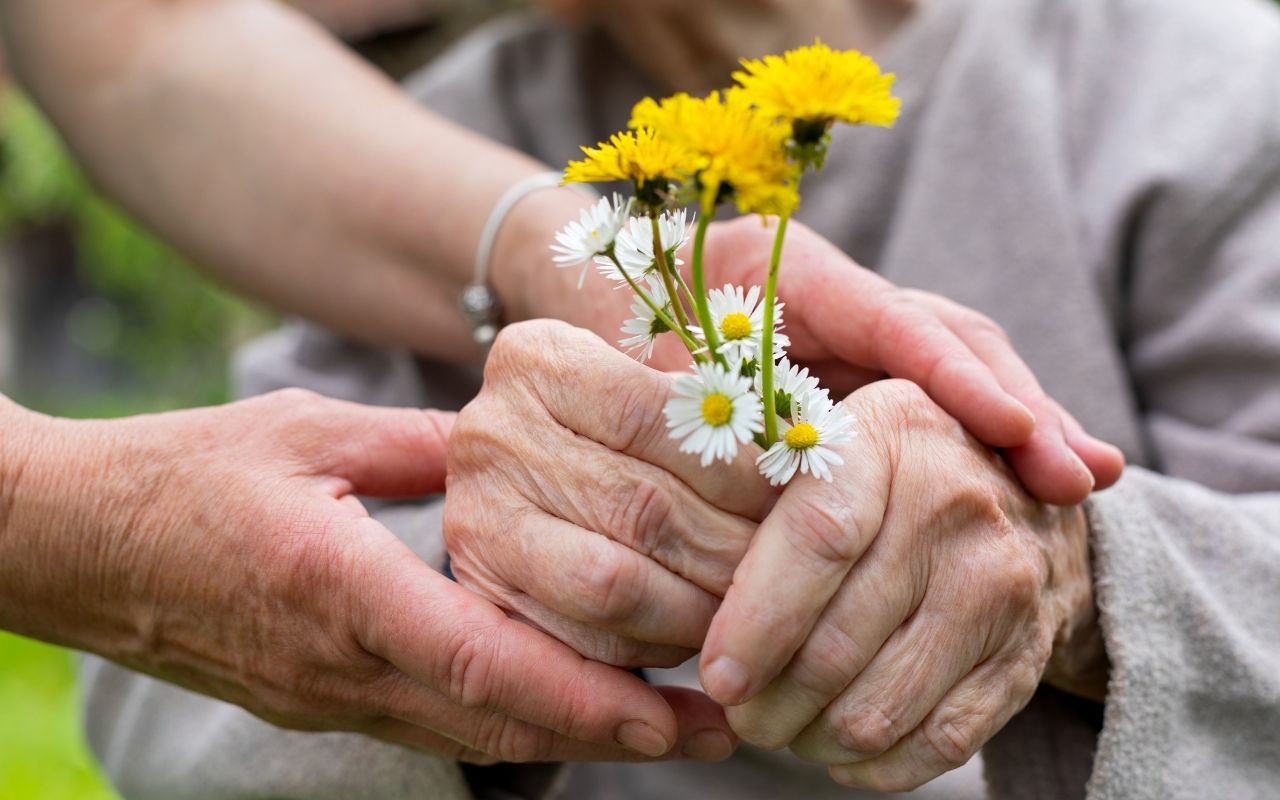Caring for aging parents is a deeply rewarding and emotionally nuanced experience. It allows us to give back to those who have cared for us throughout our lives. However, it also presents significant challenges, often leading to physical, emotional, and mental strain. This article explores comprehensive and effective strategies to manage the stress associated with caregiving, ensuring that both you and your loved ones maintain a high quality of life.
Caring for elderly parents often demands a level of commitment and resilience that can lead to what's known as “caregiver burnout.” Defined as a state of physical, mental, and emotional exhaustion, caregiver burnout arises from prolonged stress, limited support, or trying to balance too many responsibilities. According to CareLink, nearly half of family caregivers struggle to balance their lives with caregiving duties, and 40% report experiencing depression. This highlights the pressing need for effective stress management strategies.
Being proactive is crucial. The first and most essential step in managing caregiver stress is recognizing when to seek help. This doesn't necessarily mean relinquishing your responsibilities, but rather supplementing your efforts with additional resources. Home care services, such as those provided by CareLink, can assist with everyday tasks like bathing, grooming, and meal preparation, allowing your elderly parent to remain independent while receiving essential support.
Another critical factor in managing stress is ensuring a safe home environment for your parents. Safety is paramount. Eliminating potential hazards such as loose rugs, cluttered pathways, and inadequate lighting can prevent accidents and provide peace of mind. Installing handrails in stairways and grab bars in bathrooms further reduces risk and enhances mobility within the home.
Establishing a Routine
Creating a structured daily routine is beneficial not only for your parents, but also for you as a caregiver. Routines provide predictability, which can be comforting and reduce anxiety for elderly individuals. Include activities that promote physical activity, mental engagement, and emotional well-being. Simple exercises, reading sessions, or listening to music can make a significant difference in their daily lives.
Encouraging social interaction plays a vital role in mental health. Social isolation can lead to depression and other health issues. Encourage your parents to stay connected with friends and family through regular phone calls, video chats, or visits. Social interaction fosters a sense of belonging and emotional support.
Planning Healthy Meals
Nutrition is another cornerstone of elderly care. A balanced diet supports overall health, aids in disease prevention, and boosts energy levels. Plan meals rich in fruits, vegetables, whole grains, lean proteins, and low-fat dairy products. Ensure that meals are both nutritious and appealing, considering any dietary restrictions or preferences your parents may have. Proper hydration is equally important—encourage regular water intake to maintain optimal hydration levels.
Managing Medications
Medication management is a common challenge in elderly care. Keeping track of multiple medications can be daunting, but it's crucial to ensure they are taken as prescribed to avoid adverse effects. Using a pill organizer, setting reminders, or utilizing medication management apps can simplify this task and reduce the risk of missed doses or incorrect dosages.
Staying Organized
Effective caregiving requires meticulous organization, especially when juggling appointments, paperwork, and other responsibilities. Utilize calendars, planners, or digital tools to keep track of important dates and tasks. This not only ensures that nothing is overlooked but also helps to reduce the mental load associated with caregiving.
Taking Breaks and Practicing Self-Care
Self-care is often perceived as a luxury rather than a necessity, but it is essential for preventing caregiver burnout. Regularly scheduled breaks for engaging in activities you enjoy, such as exercise, hobbies, or relaxation techniques like meditation or yoga, can rejuvenate your mind and body. Taking care of your own health enables you to provide better care for your parents.
Effective Communication
Open and honest communication is the foundation of successful caregiving. It’s important to express your own needs and limitations while actively listening to your parents' concerns. This mutual understanding fosters a cooperative and supportive caregiving relationship. When necessary, seeking external support from professional counselors or support groups can also provide valuable emotional assistance.
Seeking Support
Don’t hesitate to seek help from family members, friends, or professional caregivers. Sharing responsibilities can significantly reduce your stress levels. Many areas have support groups for caregivers, which provide a platform to share experiences, gain insights, and receive emotional support from others in similar situations.
Preparing for Emergencies
Having a plan in place for emergencies is crucial. Ensure that important phone numbers and documents are easily accessible. Familiarize yourself with emergency procedures and consider equipping your parents' home with an emergency alert system. Being prepared can alleviate some of the anxiety associated with potential crises.
Developing a Care Plan
Creating a comprehensive care plan tailored to your parents' specific needs is essential. This involves assessing their health, daily activities, and safety requirements. Engage healthcare providers in this process to ensure that all medical needs are addressed. The care plan should also include provisions for your own availability, balancing personal and professional responsibilities, and the involvement of additional caregivers if necessary.
Regular Medical Check-Ups
Regular medical appointments are vital for monitoring and managing your parents' health. Ensure that they attend all scheduled appointments, follow prescribed treatments, and maintain open communication with healthcare providers. Staying proactive in managing health issues can prevent complications and promote better overall health.
Maintaining Mental Health
Mental health is as important as physical health. Be vigilant for signs of depression, anxiety, or cognitive decline in your parents. Early detection and intervention can make a significant difference in managing these conditions. Encourage activities that stimulate their minds and support cognitive health, such as puzzles, reading, or engaging in new hobbies.
Creating a Comfortable Living Environment
A supportive and comfortable living environment greatly enhances your parents' quality of life. Personalize their space with familiar items, photos, and decorations that reflect their interests and memories. Comfortable furniture that is easy to use and accessible can also make daily life more enjoyable and less physically demanding.
Understanding the Challenges
Caregiving can be incredibly rewarding, but it also presents numerous challenges that must be acknowledged and addressed. Managing the physical and mental health needs of aging parents, assisting with daily tasks, ensuring safety, and balancing your own responsibilities can be overwhelming. Recognizing these challenges and taking steps to mitigate them is essential for sustainable caregiving.
Managing the Emotional Toll
Caregiving can take a significant emotional toll. It's important to prioritize your own mental health and find ways to cope with stress. Engage in activities that bring you joy and relaxation, and don't hesitate to seek professional support if needed. Maintaining your well-being enables you to be a more effective and compassionate caregiver.
Connecting with Resources
Numerous resources are available to support caregivers. Organizations such as Psychology Today offer valuable insights and tips for managing caregiver stress. Online platforms provide access to support groups, counseling services, and practical caregiving advice. Leveraging these resources can greatly enhance your caregiving experience and provide much-needed support.
The Importance of Boundaries
Establishing boundaries is crucial in caregiving. It's important to balance caregiving responsibilities with your own needs and commitments. Setting clear boundaries helps prevent burnout and ensures that both you and your parents maintain a healthy relationship. Communicate these boundaries openly with your family and seek their support in respecting them.
Building a Support Network
A strong support network is invaluable for caregivers. Reach out to family, friends, and community resources for assistance. Involving others in caregiving tasks can reduce your workload and provide emotional support. Joining support groups, both online and in-person, connects you with individuals who understand your experiences and can offer empathy and advice.
Optimizing Your Environment
Creating an optimal caregiving environment involves making practical adjustments to your home. This includes ensuring safety, accessibility, and comfort. Remove tripping hazards, improve lighting, and consider home modifications such as stair lifts or wheelchair ramps if needed. A well-organized and supportive environment makes caregiving more manageable and less stressful.
Financial and Legal Considerations
Managing financial and legal affairs is a crucial aspect of caregiving. Ensure that all necessary legal documents, such as power of attorney and healthcare directives, are in place. Managing finances, including medical expenses and long-term care costs, requires careful planning and organization. Seeking advice from financial advisors or legal professionals can help navigate these complexities.
Embracing Professional Help
In some situations, professional help may be necessary. Hiring a home health aide or a nurse can provide specialized care and relieve some of your burdens. Professional caregivers are trained to handle medical needs and daily tasks, allowing you to focus on maintaining your relationship with your parents rather than solely on caregiving duties.
The Role of Technology
Technology can be a valuable ally in caregiving. Utilize apps and devices designed to assist with medication management, health monitoring, and emergency alerts. Telemedicine services also provide convenient access to healthcare professionals, reducing the need for frequent in-person visits. Embracing technology can streamline caregiving tasks and improve overall efficiency.
Continual Learning and Adaptation
Caregiving environments and needs change over time. Continual learning and adaptation are essential. Stay informed about new caregiving techniques, medical advancements, and available resources. Regularly reassess your caregiving plan and make adjustments as needed to address evolving circumstances. Flexibility and willingness to adapt contribute to sustainable caregiving.
Conclusion
Caring for aging parents is a profound and multifaceted journey. It demands empathy, resilience, and a proactive approach to managing both your parents' and your own well-being. By implementing these strategies, you can effectively manage the stress associated with caregiving, ensuring a balanced and fulfilling experience. Remember, seeking support and taking care of yourself are as important as the care you provide to your loved ones. With the right approach and resources, caregiving can be a rewarding and enriching chapter of life for both you and your parents.









